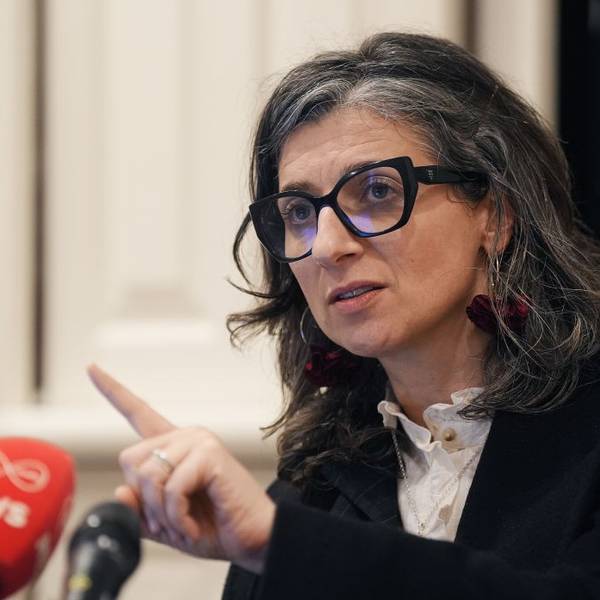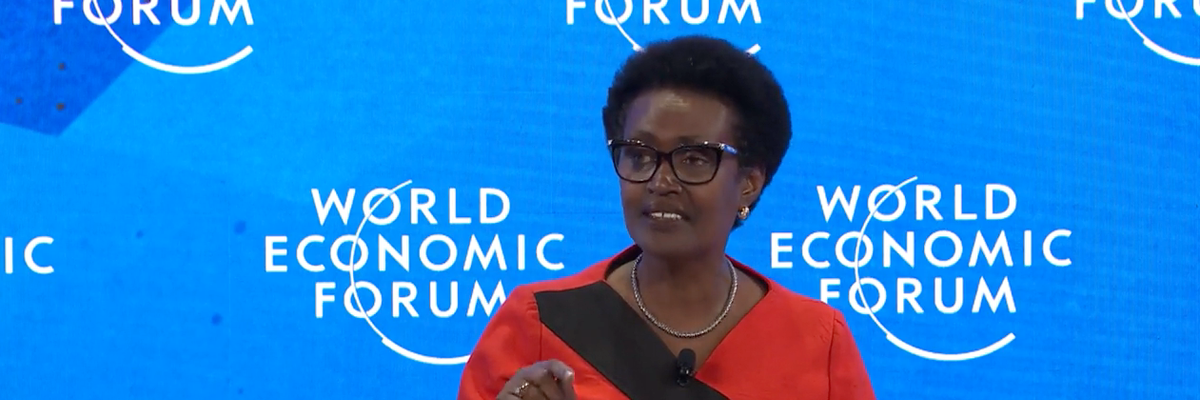The head of the United Nations program on HIV and AIDS on Tuesday delivered a sharp rebuke of racism firmly embedded in global policies including those that ensured stark inequality in access to life-saving Covid-19 vaccines.
UNAIDS executive director Winnie Byanyima began her remarks at a session entitled "The Journey towards Racial Equity" at the World Economic Forum's annual meeting in Davos, Switzerland, with a reference to the two-year anniversary of the police killing of unarmed Black man George Floyd in Minneapolis and the mass shooting by a white supremacist earlier this month in Buffalo, New York.
"Some global policies, some global rules, embed racism in them and have outcomes that are racist."
"May George Floyd and the victims of Buffalo rest in peace," Byanyima said.
"Racism," she said, "is not only when Black people or brown people cannot breathe because of police violence."
She said it is also "when Black people, brown people, people of color take their last breath because of policy violence... when they are denied life-saving, pandemic-ending medicines because they live in majority-Black countries, brown countries, when they can't access care or education because debt is choking them."
"What would you call that? That's racism," she said.
The UNAIDS chief then pointed to the massive disparity in who has been able to get vaccinated against a pandemic that's already blamed for an estimated 15 million excess deaths worldwide.
"A year and a half since the first doses of Covid [vaccines] were delivered," said Byanyima, "75% of the people in high-income countries--which are predominantly white--are fully vaccinated but only 13% of people in lower incomes countries--mostly brown and Black--are not vaccinated."
"Wouldn't you call that racism?" she said.
Byanyima went on to refute assertions that such vaccine inequality can simply be explained as being driven by corporate greed and profit.
"The companies that have this life-saving health technology," she said, "have refused to share the rights and recipes with countries in the Global South."
However, she continued, "what about their governments, who put hundreds of billions of dollars into their innovation, who are not leveraging that money and bringing that technology so that others can produce for themselves?"
"Isn't that racism?" she said.
She noted that she is far from alone in framing the vaccine disparity in such terms and cited South African President Cyril Ramaphosa who has dubbed the situation "vaccine apartheid." In addition, she said, "the U.N. Committee on the Elimination of Racial Discrimination called it 'a pattern that replicates slavery and colonial-era racial hierarchies.'"
So "let's name it," she said. "Some global policies, some global rules, embed racism in them and have outcomes that are racist."
She also denounced the inherent racism of those who have argued Covid-related technologies were "too complicated" for African nations and other low-income countries to replicate. Such thinking, said Byanyima, was also behind the years of delay in getting life-saving antiretroviral drugs for HIV to people in the Global South.
"I'm not seeing here the businessmen and presidents who should be here listening to this," she added.
"There's much to do at the global level in global rules," she said, "to remove the racism that's embedded there."




